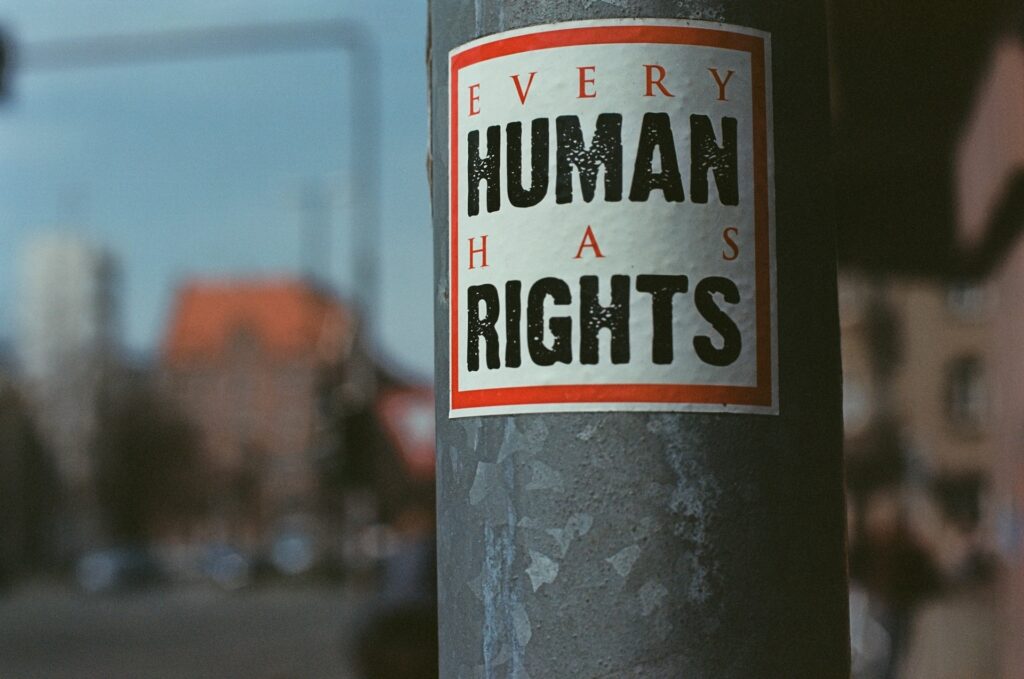Introduction
Renting a property in the Netherlands comes with its share of legal protections and duties, making it vital to get acquainted with tenant rights and responsibilities in the Netherlands. Besides applying for rent allowance and make sure your rent or rent increase is not too high, there are many other apsects of your rights and responsibilities.
This guide kicks off your journey into the Dutch rental landscape, marked by well-defined regulations that aim to fairly distribute rights and responsibilities between tenants and landlords. Here, we’ll navigate the essentials of tenant rights and responsibilities in the Netherlands, guiding you from lease signing to the final goodbye to your rental home. Armed with the right information, you’ll be well-equipped to secure your rights and fulfill your obligations with ease, ensuring a pleasant renting experience in this charming country. Let’s delve into the world of Dutch renting, where clear rules and mutual respect make all the difference in finding and enjoying your new home.

Guard Tenant Rights Before Signing the Lease
Entering a rental agreement in the Netherlands marks the beginning of a journey guided by clear legal protocols designed to safeguard your interests as a tenant. Here’s a checklist to ensure you’re well-prepared before signing on the dotted line:
- Know the Rent and Expenses:
- Confirm the rental price.
- Understand any additional charges that may apply.
- Energy Performance Certificate (EPC):
- Request the property’s EPC to evaluate its energy efficiency.
- Maintenance Records:
- Obtain records for the central heating, boiler, and chimney maintenance.
If the lease requires you to produce maintenance certificates periodically, start by asking for the most recent documents. This not only speaks to the law’s demand for clarity but also protects you from future liabilities for issues not caused by you.
Moving on to the lease itself, make sure it:
- Describes the Property in Detail:
- Lists all spaces included, such as gardens, sheds, garages, and storage areas.
- Sets Clear Terms:
- Outlines the rental conditions, payment terms, and any legal requirements.
Don’t hesitate to press for all pertinent information—it’s your right, and it paves the way for a transparent relationship with your landlord. Demand clarity on the property’s condition and your responsibilities. This approach will help prevent future misunderstandings and establish a fair starting point for your tenancy. Remember, being proactive about your rights is the bedrock of a positive renting experience.
Inspect the Lease Agreement to Protect Tenant Rights
When preparing your lease agreement in the Netherlands, pay close attention to the following components to safeguard your rights:
- Personal and Property Details:
- Ensure the lease captures full details of both tenant and landlord.
- Verify the comprehensive description of the property, inclusive of any shared facilities or additional spaces like gardens, sheds, or garages.
- Legal Annexes and Financial Terms:
- Check for inclusion of annexes detailing the rental price and payment obligations.
- Familiarize yourself with the financial terms, including how and when payments should be made.
- Negotiation of Terms:
- Discuss and negotiate the payment schedule to match your financial inflow.
- Clarify any clauses that may seem ambiguous to avoid future disputes.
- Compliance with Dutch Law:
- Confirm the contract’s compliance with the Woninghuurwet for a valid and enforceable agreement.
- Future Planning:
- Consider potential changes to your situation, such as subletting needs or living arrangements, and ensure the lease reflects permissions or restrictions accordingly.
Each point on this list is a critical step toward establishing a transparent and fair rental agreement. By addressing these areas proactively, you pave the way for a secure and enjoyable renting experience in the Netherlands.
Upon Move-in
Moving into your new Dutch home should be an exciting and smooth experience. On the day you move in, ensure the property stands up to the promised standards. The landlord is obligated to deliver a safe, healthy, and habitable space, and it’s your right to expect nothing less. Here are the steps to take upon moving in:
- Inspect Thoroughly:
- Check the property against the inventory list provided.
- Look for any signs of damage or areas needing repair.
- Report Any Issues:
- If you spot problems, document them and inform the landlord right away.
- Preferably use written communication, like email or a registered letter, for an official record.
- Understand Emergency Procedures:
- Familiarize yourself with how to report and handle emergencies. It’s usually the landlord’s responsibility to address significant issues, but knowing the process helps expedite solutions.
- Clarify Minor Repair Policies:
- Clarify with your landlord who takes care of minor repairs, as typically, tenants manage the small, daily maintenance tasks.
- Establish a Maintenance Routine:
- Plan for regular cleaning and upkeep. This proactive step can prevent larger issues and protect your deposit.
Taking these proactive steps not only ensures you cover all bases but also establishes a constructive relationship with your landlord from day one. Remember, a smooth move-in sets the tone for your entire tenancy period. With everything in order and expectations set, you can start making your new place feel like home.

Maintenance and Repairs
A key aspect of renting in the Netherlands is understanding the shared responsibilities of maintenance and repairs. As a tenant, you’ll handle the day-to-day upkeeping to ensure the property remains in top condition. Here’s what you need to keep in mind:
- Daily Maintenance:
- Tackle regular cleaning and small fixes as part of your routine upkeep.
- Change light bulbs, fix minor clogs, and perform other simple DIY tasks.
- Minor Repairs:
- Manage small repairs that don’t require professional expertise.
- Keep a log of all minor repairs for future reference and reimbursement discussions.
- Reporting Issues:
- Communicate any significant issues to your landlord immediately to avoid escalation.
- Use direct communication, like a call or an email, for speed and record-keeping.
- Landlord’s Role:
- Understand that your landlord is responsible for addressing major repairs and maintenance issues that go beyond normal wear and tear.
- Ensure clarity on how and when to report problems requiring the landlord’s intervention.
- Documentation:
- Document any correspondence and keep records of all maintenance requests and repairs done.
- Save receipts for any out-of-pocket expenses related to property maintenance.
By promptly addressing repairs and maintaining the property, you’ll not only enjoy a better living environment but also establish a transparent and cooperative relationship with your landlord. This proactive approach can help prevent disputes and ensures that the property stays conducive to your comfort and safety.
Rent and Deposit
Paying rent and managing the security deposit are two pivotal elements of tenant rights and responsibilities in the Netherlands. Here’s a straightforward rundown for tenants:
- Timely Rent Payments:
- Make sure to pay your rent promptly, as is typically expected on a monthly cycle.
- Clarify the specific date and method for rent payment as specified in your lease, to sidestep any potential oversights.
- Security Deposit Details:
- Prepare to pay a deposit, which is usually limited to a maximum of three months’ rent. This serves as a monetary safeguard for the landlord and is a standard practice under tenant rights and responsibilities in the Netherlands.
- You’re entitled to have this deposit returned after your tenancy ends, assuming the property is in the agreed-upon condition.
- Deposit Return Conditions:
- Understand the conditions for getting your full deposit back, which generally means you must leave the property free of damage and in good repair.
- Documentation of Condition:
- On moving in, document the property’s condition to ensure a fair assessment when moving out.
- Engage in a detailed inspection and take note of any existing damages to safeguard your rights as a tenant, aligning with the tenant rights in the Netherlands.
Staying on top of these aspects not only ensures you fulfill your contractual obligations but also helps protect your financial interests. Be proactive in addressing any potential rent disputes and maintain open communication with your landlord regarding the property’s care. Doing so will pave the way for a smoother tenancy and deposit recovery process.
Living in the Property with Tenant Rights
Living in a rental property in the Netherlands means embracing a set of tenant rights and responsibilities in the Netherlands. As you settle in, it’s essential to make the space your own while respecting the terms of your lease. Adequately furnishing your home and maintaining its condition isn’t just about comfort; it’s a crucial part of your agreement that provides security for both you and your landlord.
Here are some key aspects of living in a rented property:
- Furnishing Your Home:
- Equip your home with enough furniture and amenities that meet your needs and reflect a standard of living that aligns with the property’s value.
- This approach not only makes your living space enjoyable but also adheres to the expectations for a well-maintained property.
- Subletting:
- Always obtain written permission from your landlord if you consider subletting or changing the agreed-upon living arrangement. It’s a necessary step of tenant rights and responsibilities in the Netherlands.
- Security and Safety:
- Ensure the safety and security of the property by following guidelines for emergencies and general conduct outlined in your lease.
- Upkeep:
- Regularly perform cleaning and simple maintenance tasks. Promptly address issues like leaks or electrical problems by informing your landlord, which is in line with responsible tenancy.
By staying informed and proactive, you uphold the tenant rights and responsibilities in the Netherlands, fostering a transparent and positive relationship with your landlord. Whether it’s handling repairs or maintaining the property, your active participation is vital. Not only does this effort minimize the potential for disputes, but it also ensures that your tenancy remains a pleasurable experience.

Respecting Both Tenants and Landlords’ Rights
The tenant-landlord relationship is built on mutual respect and understanding. Tenants should allow access for urgent repairs, while landlords must respect their tenants’ peaceful enjoyment of the property. Here’s how both parties can maintain this balance:
- For Tenants:
- Respect the property and use it as intended in your lease agreement.
- Allow your landlord to conduct necessary repairs that cannot wait until the end of the lease.
- Acknowledge that maintaining a good state of the rented property is a part of your tenant rights and responsibilities in the Netherlands.
- For Landlords:
- Give tenants a peaceful living environment by not intruding without consent or proper notice.
- Respect the agreed-upon terms for entering the property for inspections or repairs.
Both tenants and landlords benefit when they uphold their parts of this social contract. As a tenant, when you address issues proactively and understand the scope of your lease, you stand on firm ground to enjoy your rented space fully. And as a landlord, by providing a well-maintained home and responding promptly to repair requests, you ensure the longevity of your rental agreement and the satisfaction of your tenants.
Insurance and Damage
Insurance and damage coverage are pivotal under the tenant rights and responsibilities in the Netherlands. As a tenant, you’re generally liable for any damages that occur during your tenancy, except in cases where you can prove it wasn’t your fault. It’s prudent to secure a home insurance policy to shield yourself against financial losses from unforeseen damages.
Here’s what you need to keep in mind about insurance and damages:
- Secure Insurance:
- Take out a home insurance policy that covers potential damage to the property. This move is not just cautious; it’s often seen as an essential step in safeguarding your interests.
- Report Damages Immediately:
- If damage occurs, report it to your landlord straight away. Quick reporting can often prevent minor issues from becoming major problems and is a clear expectation within your tenancy rights.
- Document Everything:
- Keep a record of any damages and repairs, along with communication with your landlord. This documentation will be invaluable if disputes arise or claims are made on your deposit.
By actively managing your insurance and staying vigilant about property conditions, you uphold your role in the tenant-landlord relationship. Remember, while the landlord owns the property, you have a vested interest in keeping it in prime condition throughout your lease.

Privacy and Inspections as Tenant Rights
Your privacy as a tenant is a core component of the tenant rights in the Netherlands. It’s essential to know that landlords have limitations on when they can enter your rental space. They must respect your right to privacy and can only request entry for specific reasons, such as urgent repairs or to perform annual inspections, and even then, advance notice is required.
Here are the key points regarding privacy and inspections:
- Advance Notice for Entry:
- Your landlord should give you prior notice before entering the property, which is a fundamental part of tenant rights in the Netherlands.
- Consent is Crucial:
- Landlords need your permission for access unless it’s an emergency situation that requires immediate attention.
- Scheduled Inspections:
- Agree on regular inspection times in advance, ensuring they are conducted at a reasonable time and frequency.
- Emergency Repairs:
- For emergencies, landlords may enter without prior consent, but these instances are typically defined in the rental agreement.
By understanding these privacy aspects, you can better manage your living space and ensure a respectful and lawful relationship with your landlord. Always communicate openly about visits and repairs, and don’t hesitate to assert your rights if the agreed terms are not being followed.
Ending the Lease as Tenant Rights
When the time comes to end your lease, navigating the process with a clear understanding of tenant rights and responsibilities in the Netherlands is essential. Whether you’re moving out at the end of a long stay or need to leave early, here are the steps and considerations to follow:
- Notice Period:
- Honor the notice period as stipulated in your contract. For most short-term leases, a three-month notice is standard.
- Provide your landlord with written notice to document your intent to vacate the premises, ensuring a clear end to your rental agreement.
- Early Termination:
- If unforeseen circumstances require you to leave before the end of your contract, you may be subject to a penalty. This clause is often included as part of safeguarding the landlord’s interests in line with tenant rights.
- Discuss potential waivers or reductions in the penalty if your situation warrants it, always advocating for fairness as supported by tenant legislation.
- Final Inspection:
- Arrange a final walk-through with your landlord. This is a chance to show that the property is in good condition, increasing the likelihood of receiving your full deposit back.
- Clean the property thoroughly and repair any damage incurred during your stay to ensure the space is returned in a rentable condition.
- Deposit Refund:
- Upon successfully completing the final inspection, request the return of your security deposit. Landlords have a set period after your lease ends to refund this amount, provided all conditions have been met.
By proactively managing the end of your lease and understanding the associated tenant rights and responsibilities in the Netherlands, you can exit your rental agreement positively and efficiently. This proactive management of the lease-ending process reflects good tenant practices and helps ensure you leave on good terms, with your rental history intact.

Final Thougths
Navigating the rental market in the Netherlands is a matter of understanding and exercising your tenant rights and responsibilities. From ensuring your home is well-maintained to knowing how to properly end a lease, being informed is your strongest asset. Should challenges arise, it’s important to seek expert advice or legal support to address any issues within the framework of Dutch law. Remember, a successful tenancy is based on clear communication and mutual respect between you and your landlord, underpinned by the comprehensive tenant protections in place. Stay informed, stay prepared, and enjoy the comfort and security of your Dutch home.






